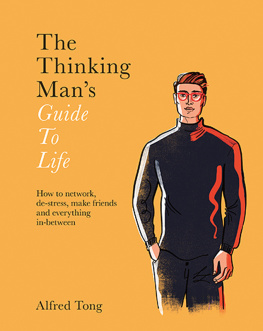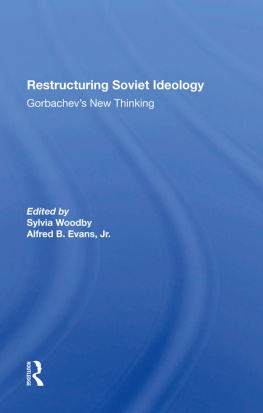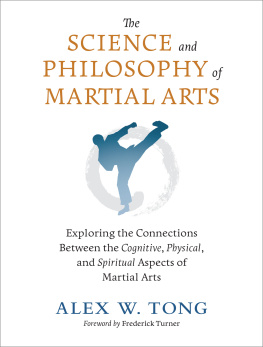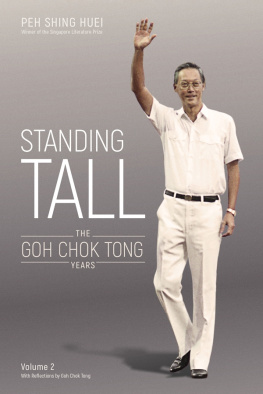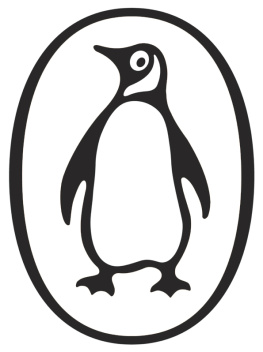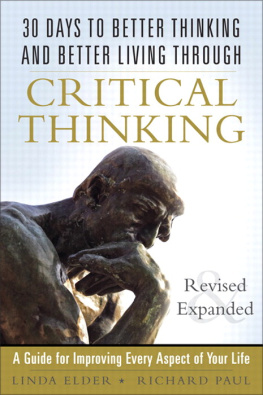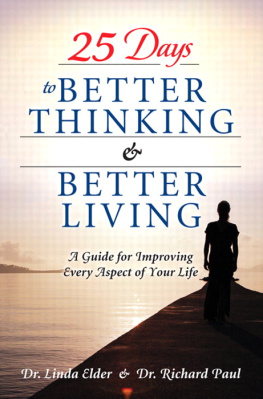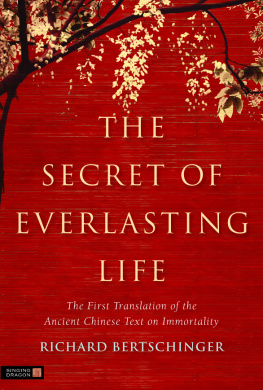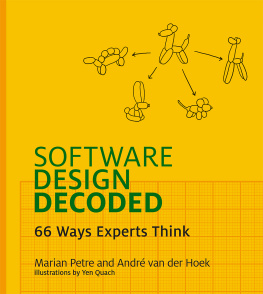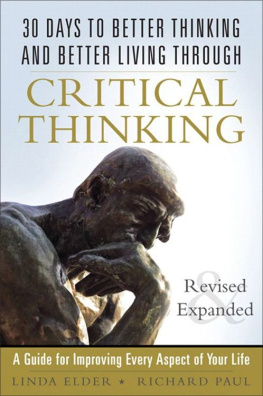CONTENTS
You are holding within your hands a self-help book. There, Ive said it: self-help book. Now, if youre the type of person who quietly agonises over what people might think of your carefully curated, Instagrammable bookshelf, dont worry! Theres actually a long and distinguished history of books of this kind, and one to which this one is hugely indebted. For what are The Book of the Courtier by Castiglione and The Art of War by Sun Tzu, if not self-help guides for the upwardly mobile Italian aristocrat and the Zhou dynasty warlord, respectively?
Combining the latest insights from neuroscientists and psychologists alongside timeless thoughts from historys greatest philosophers, The Thinking Mans Guide to Life offers invaluable advice on everything from how to get a decent nights sleep to how to make friends, all in a bitesize format. Read this book to be less stressed, more successful and, generally, a nicer sort of person. If, as Lord Chesterton once said: Style is the dress of thoughts, then think of this book as the new three-piece suit of your mind.

A lot of it deals with the various travails of the internet age: namely, how we can stop our mobile phones from bothering us and setting us on edge all the time. There is, of course, a fairly simple solution: just turn the bloody things off! However, we need them to be on for work and love and all the rest of it, so its about being a little more deliberate and strategic in how we use the internet and smartphones.
And what about when we get off our phones? No doubt wed like to be sexier, cooler, more charming and charismatic. Any book that promises you these things in three easy steps is delusional. But the psychology and history of charm and his more boisterous cousin, charisma, are genuinely interesting. Youd be amazed by how much were suckers for a charmer and how terrible things can get when were overly dazzled by charisma.
Overall, this book should help you cast a more discerning and sceptical eye over the ideas and trends that supposedly constitute modernity, but which are, in fact, rather stupid. Like the idea that brainstorms help with creative thought, or that its a good idea to outsource your brain to the internet. People are better than computers, and face-to-face conversations, not smart phones, are responsible for new thoughts and ideas.
If, as Lord Chesterton once said: Style is the dress of thoughts, then think of this book as the new three-piece suit of your mind.
CHAPTER ONE
WORK

HOW TO GET EMAIL UNDER CONTROL
According to the Harvard Business Review, the average worker spends up to eight hours per week on email, dipping into their inboxes an average of 74 times a day. Whats more, 50 per cent of the emails managers read and respond to are irrelevant to their work.
And thats not all according to research by Kings College London, all this ccing is quite literally making us (more) stupid. We lose up to ten IQ points when we interrupt work to check email, says Jocelyn K. Glei, author of Unsubscribe: How to Kill Email Anxiety, Avoid Distractions, and Get Real Work Done. Thats more than being stoned on weed.
We lose up to ten IQ points when we interrupt work to check email. Thats more than being stoned on weed.
So why is it so addictive? Neurologically, email operates like a slot machine, or what neuroscientists call a random reward system, says Glei. Most of the email you receive will be junk or a bothersome work request. But sometimes youll get something exciting, such as a flattering invitation. Its this random reward that makes email so addictive. It activates a primal impulse in our brain to seek out reward.
So heres how to not only cut down the amount of time we spend on email, but also become more effective at communicating via email, making us less annoying to our colleagues and business partners.
WRITE A TO-DO LIST
Funnily enough, were at our least productive when staring at our inbox hoping for that amazing invite or job offer which never seems to arrive, no matter how many times you hit the refresh button. We are most likely to fall into the random reward trap when we are feeling aimless. The way to beat it is by writing a to-do list before starting work so that we can get our dopamine hit from real rewards, i.e. by doing the work we care about. This empowers you to kick off the working day with clarity and momentum, says Glei. It means you have a framework for the days priorities in place before you check your email, allowing you to weigh any incoming requests against what youve already planned to accomplish. Be realistic as you craft your to-do list. Crossing everything off is your reward, and it will also reinforce the positive behaviour.

USE COMPLETION BIAS TO YOUR ADVANTAGE
Two hundred emails, 150 emails, 100 emails, zero emails. Aahhhh! Ever get that inbox zero feeling? Feels good, doesnt it? Until you find out youve done nothing of worth whatsoever, apart from tell Kevin in accounts that, yes, you will be coming to his leaving drinks. The compulsion to get to inbox zero is driven by what neuroscientists call completion bias, which gives our brains a juicy hit of dopamine. The key to using completion bias to your advantage is to visualise signs of progress in the work you care about. Its easy to see progress on meaningless technology-based tasks, whereas its difficult to keep track of complex, long-term creative projects that will have the most impact on our lives, says Glei. When Im writing a book, I keep a visual record of the number of words Ive written each day on a calendar. Designers could stick prototypes or drafts up on the wall.
REPLY IN BATCHES
There are two types of emailer: reactors, who react to emails when they arrive, allowing it to nibble away at their time, and batchers, who set aside specific chunks of the day to send and respond to emails, making their time more productive. To get yourself into the groove of batching, I recommend setting aside two to three blocks of 3045 minutes per day for checking email, says Glei. For important clients or bosses who expect a faster response, Gmail and Android have VIP notification options, which will alert you when specific contacts email.

USE EMOJIS :)))
According to Daniel Goleman, author of Emotional Intelligence and a leading scientist in the field of emotional intelligence, there is a negativity bias to email hardwired into us at a neural level. This means that if the tone of an email is neutral, we automatically assume the tone is negative. This point relates particularly to men, who have a bias towards a just-the-facts approach, which they associate with efficiency, says Goleman. Use positive language, express some personality and opinion to increase your chances of a response, especially when youre reaching out to someone you dont know. Anything that helps to lighten the tone, including emoticons, is permissible :)))

